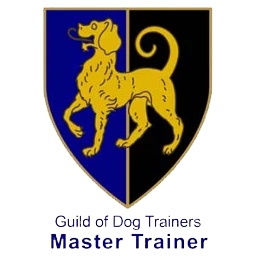It can be difficult to know how to calm a dog down when they are having a reactive behaviour response to triggers in their environment. Whether it is destructive behaviour or physical anxious symptoms such as shaking, we have rounded up our top tips of what to look out for and steps to overcome it.
Signs Of An Anxious Dog
Knowing the signs of an anxious dog is key to managing symptoms and the aftermath. Some symptoms can be down to the individual dog, so you may notice certain patterns. The most common signs include:
- Pacing
- Change of behaviour
- Loss of appetite
- Barking
- Destructive behaviour or lack of socialisation
- Shaking
Tips For Calming Down A Dog
When a dog is showing signs of distress, they may be anxious or hyper, which can make it hard for owners to break the behaviour patterns. Our top tips for calming down your dog include:
-
- Keep A Calm, Relaxing Space: If possible, take your dog to a quiet area or room with little to no distractions. This will remove any triggers and be a safe space to calm down.
- Music Therapy Including White Noise: Previous studies have shown that both white noise and classical music have proven to have calming effects on animals, including dogs. By playing this type of noise, it can reduce the stress hormone (cortisol) that is released in triggering situations.
- Getting enough exercise: Going for a walk helps release excess energy and endorphins (stress-relieving hormones) that increase happiness.
- Sticking to a routine: Your dog will have relieved anxiety and stress if they have a day-to-day routine. This means they associate time with specific activities and know what to look forward to.
- Physical contact: Affection from owners or loved ones can help relieve stress, so the next time you notice any warning symptoms, give your dog a hug or pat.
- Give a blanket: Some dogs may associate specific blankets with comfort, offering them warmth. Often weighted blankets can help relieve stress as the pressure helps take the nervous system out of fight and flight response.
- Small Exposure: Putting your dog in a controlled environment that gives small exposure to their triggers may help them get over it over time. You need to be careful not to do ‘too much too soon’ however, in this scenario.
- Speak to a vet: If at-home tips are not working for you, it may be worth speaking to your vet to see if they can help you further. They may recommend and prescribe medication in certain situations
- Dog Training: A reactive dog training programme can help your dog not react in stressful situations.
Reactive Dog Training
Reactive dog training is a part of our dog behaviourist training. It looks at reducing reactive behaviour such as excessive barking, lunging, aggression and destruction in response to triggering environments and situations.
Can A Reactive Dog Be Trained?
Yes, reactive dogs can be trained, but it can take time and will require consistency to be effective. Eventually, your dog will create positive associations with previously triggering situations and reduce unwanted behaviour.
Is It Too Late To Train My Reactive Dog?
No, your dog is never too late to be reactive trained. However, with some dogs the longer you leave, the longer it may take to reverse the reactive behaviour. You are essentially retraining their response triggers that they have been reacting a certain way over the years, so it can take time. Even if it doesn’t completely go away, it can significantly reduce bad behaviours.
What Not To Do With A Reactive Dog
There are certain things you can do day-to-day that can trigger reactive behaviour. Ensure you don’t do the following:
- Also reacting negatively in stressful situations
- Not avoiding triggers
- Not being vigilant to surroundings
- Rewarding negative behaviours
Turning negative situations into positive ones and being stress-free in situations can help your dog be calmer. Find out more about positive reinforcement in our Best Dog Training Methods.
How Long Does It Take For A Dog To Stop Reactivity?
Numerous factors can affect how your dog reacts to reactive training. Typically, you can expect to see results from 2 months to 1 year of training. However, this can depend on the severity of the behaviour, how often they train and if this training has been expanded into the home too.
Do Dogs Grow Out Of Reactivity?
Some puppies may grow out of reactive behaviour, however, this is not always guaranteed to be the case. Most dogs will continue these reactive behaviours until they have had training to stop or reduce them. It is beneficial to start training as soon as you notice behaviour patterns or the same reaction to stressful situations.
Reduce Reactivity By Training Dogs To Ignore Others
Often, dogs can feed off each other’s energy and if one or both have reactive behaviour patterns, it can fuel the situation to be worse. This can make it difficult to go on walks if your dog is going to react to every dog they see on the way.
Why Do Dogs Get Hyper Around Each Other?
Instincts can take over when dogs are around each other, and it’s normal for dogs to get excitable when meeting and playing with other dogs. However, if you notice more extreme behaviours, hyperactivity or negative behaviours as a result of socialisation then you may need calming techniques to make it more pleasant.
Top Tips For Ignoring Other Dogs
When you’re on your dog walks (on a leash or not) you don’t want your dog reacting to other dogs’ presence. This can make it uncomfortable for the other dog and owner and also make you not trust your own dog’s behaviour. To make your dog ignore others when out and about, you can:
- Choose good rewards
- Ensure your dog is recalled and trained
- Avoid busy places if you have concerns
- Use a long leash, so your dog can still be curious and wander around (you can start shorter and make the leash longer with progress)
- Break eye contact by standing in front of your dog
- Distract your dog
This is about building up positive behaviours and attitudes towards other dogs. By being consistent, you will build mutual trust.
Calming Your Dog With Training From A&T Trained Dogs
Here at A&T Trained Dogs, we have specialist dog training to overcome triggering situations and reactive behaviours. With expert trainers and exceptional indoor and outdoor facilities, we create bespoke plans to suit you and your dog’s needs. For more information, contact us online or call us on 01524 587315.



